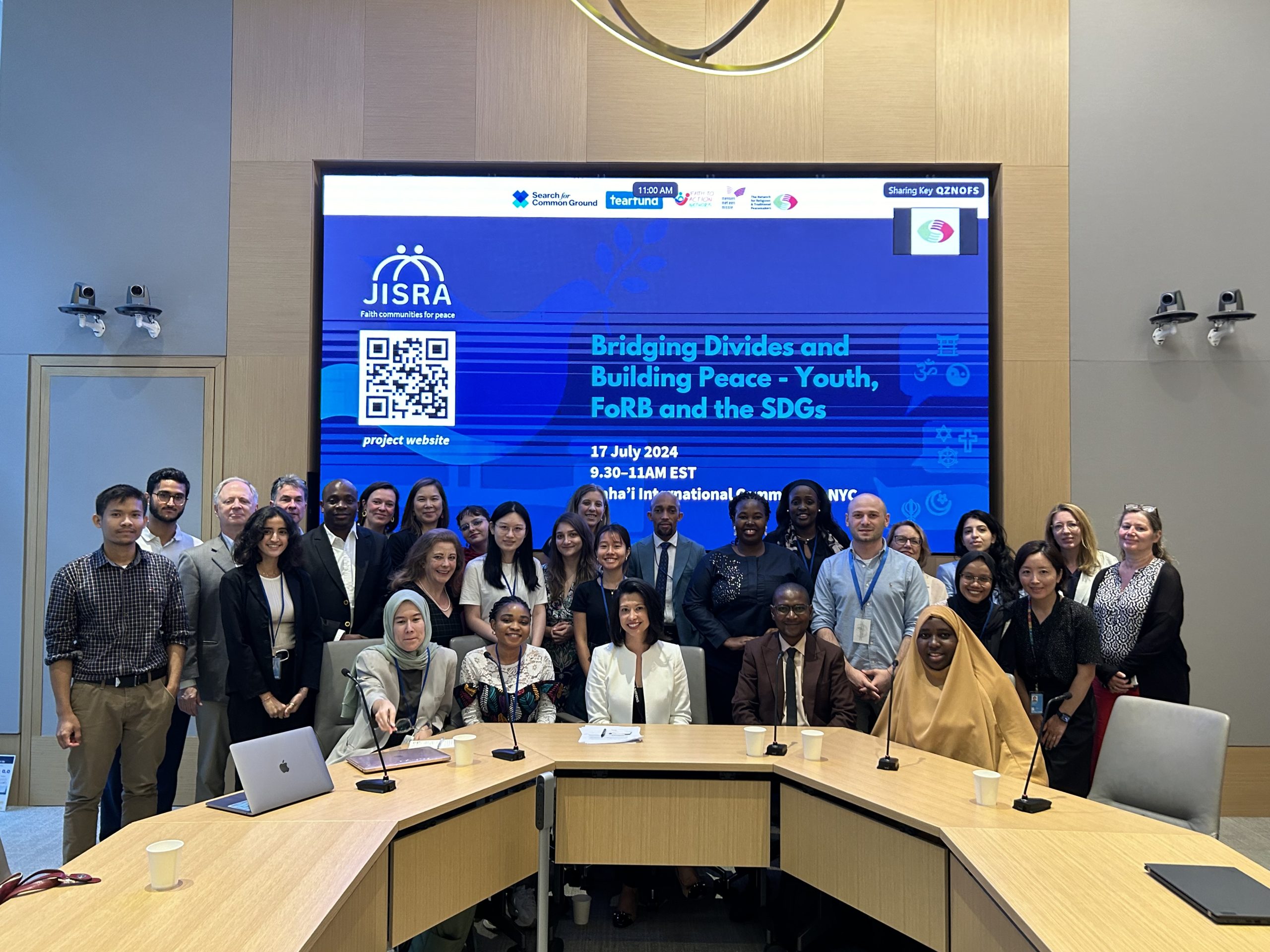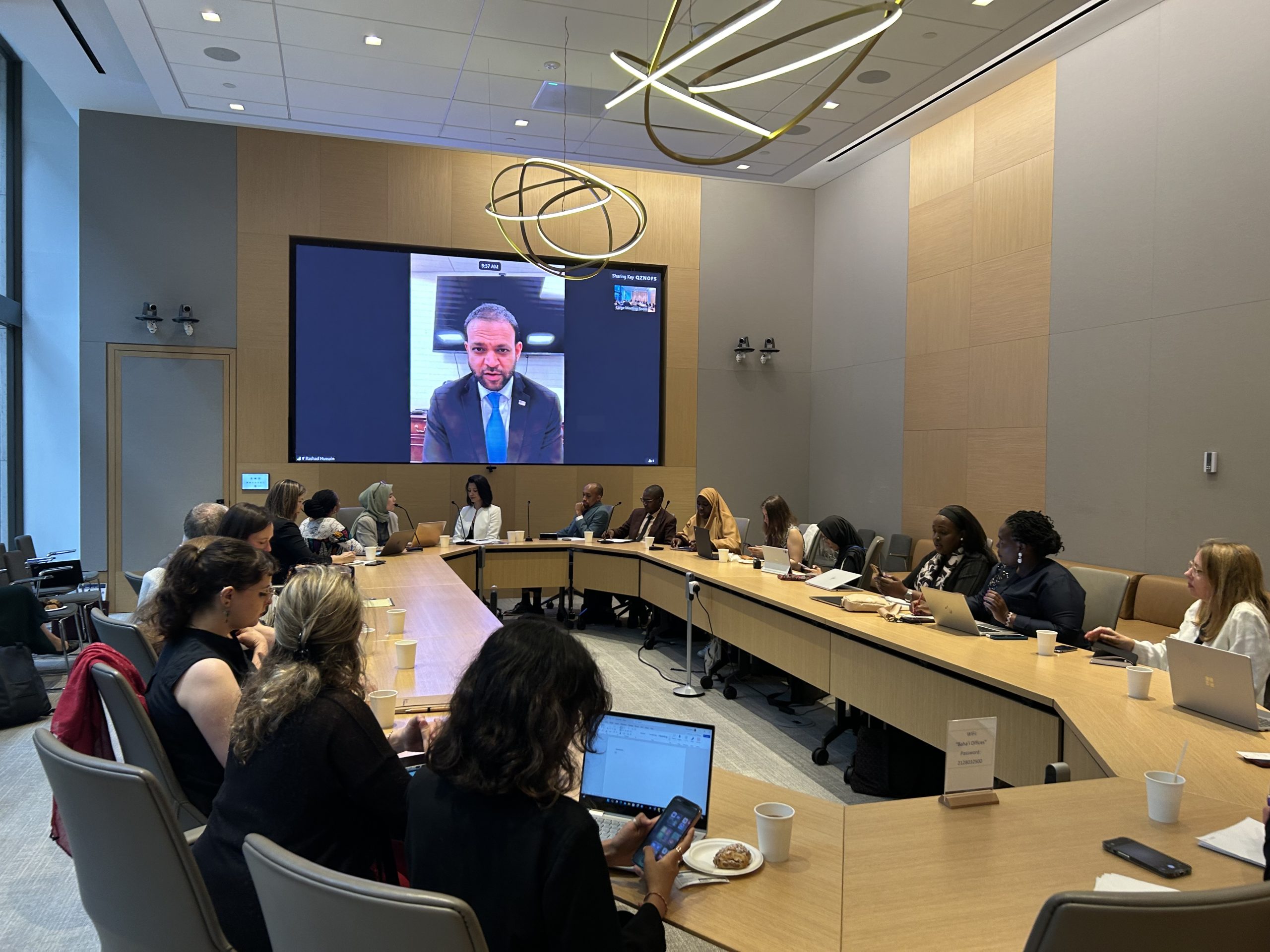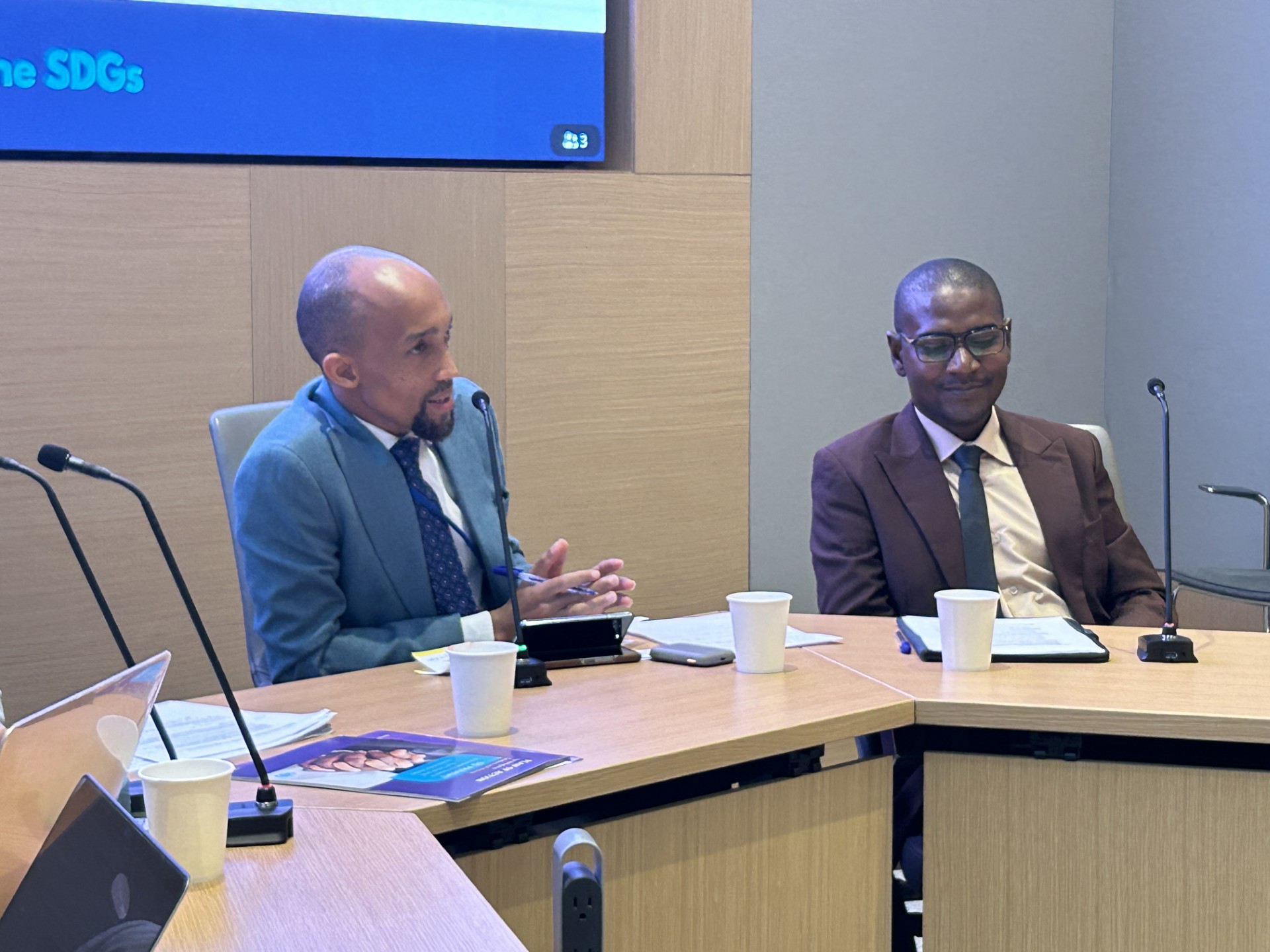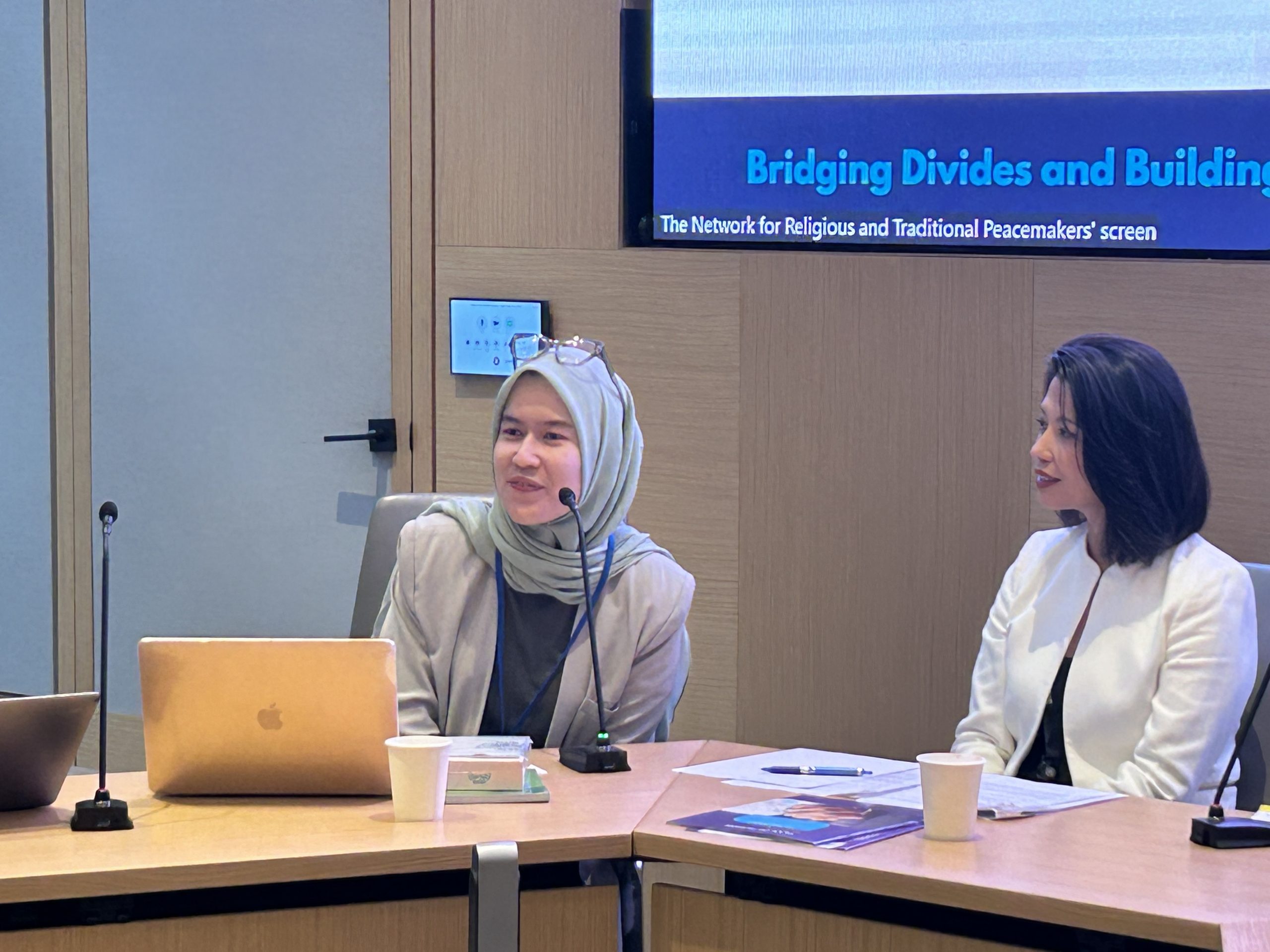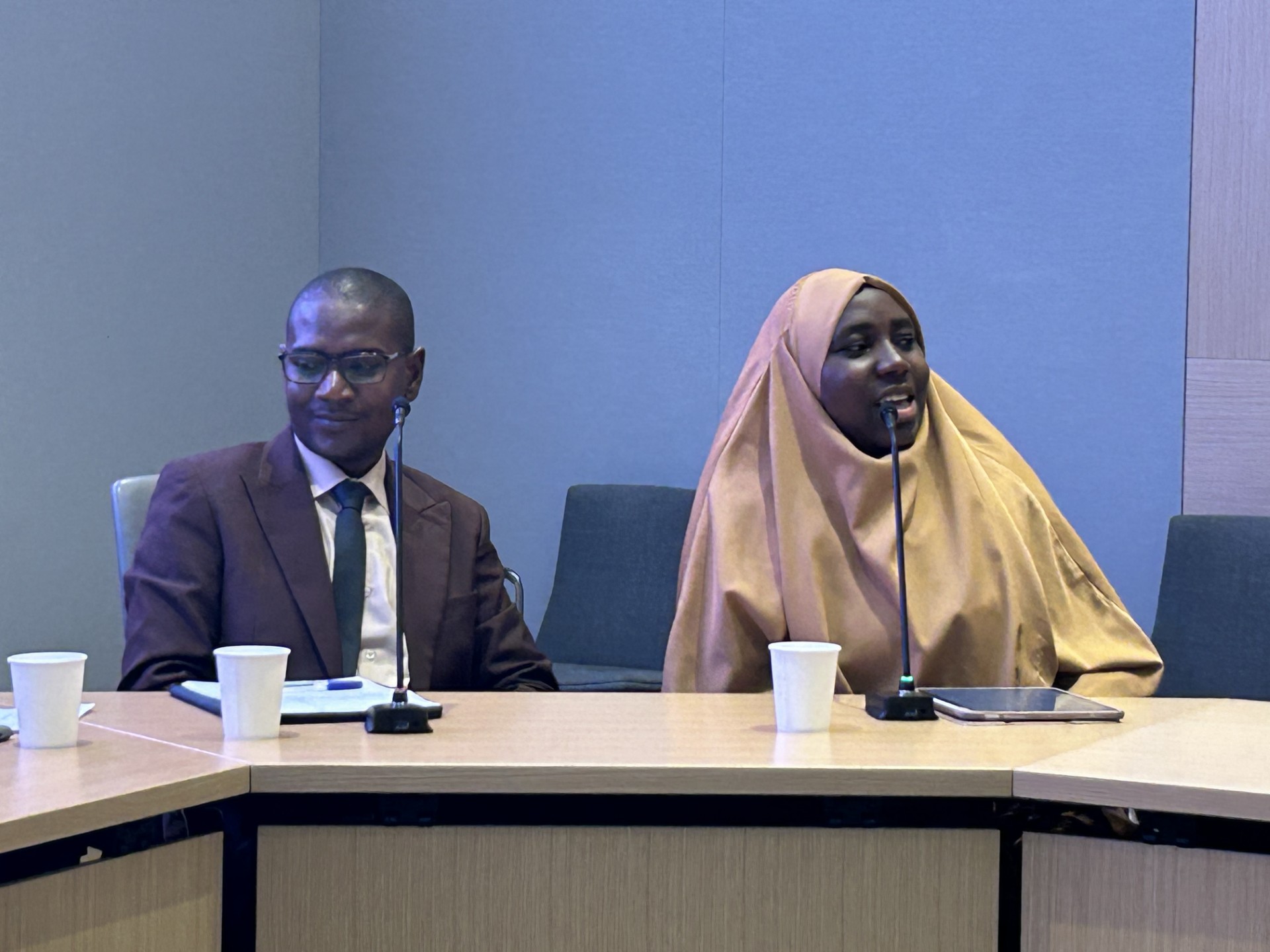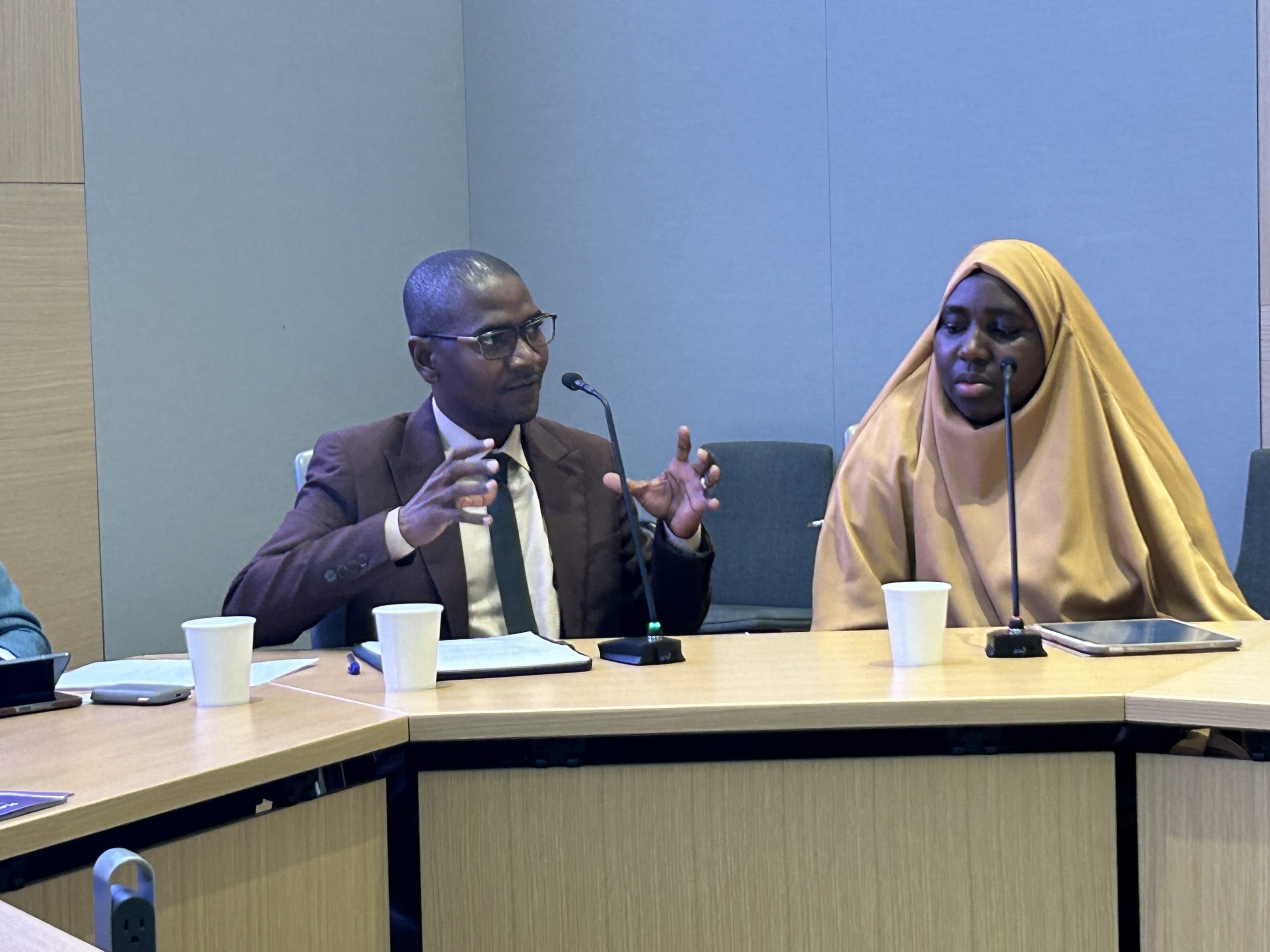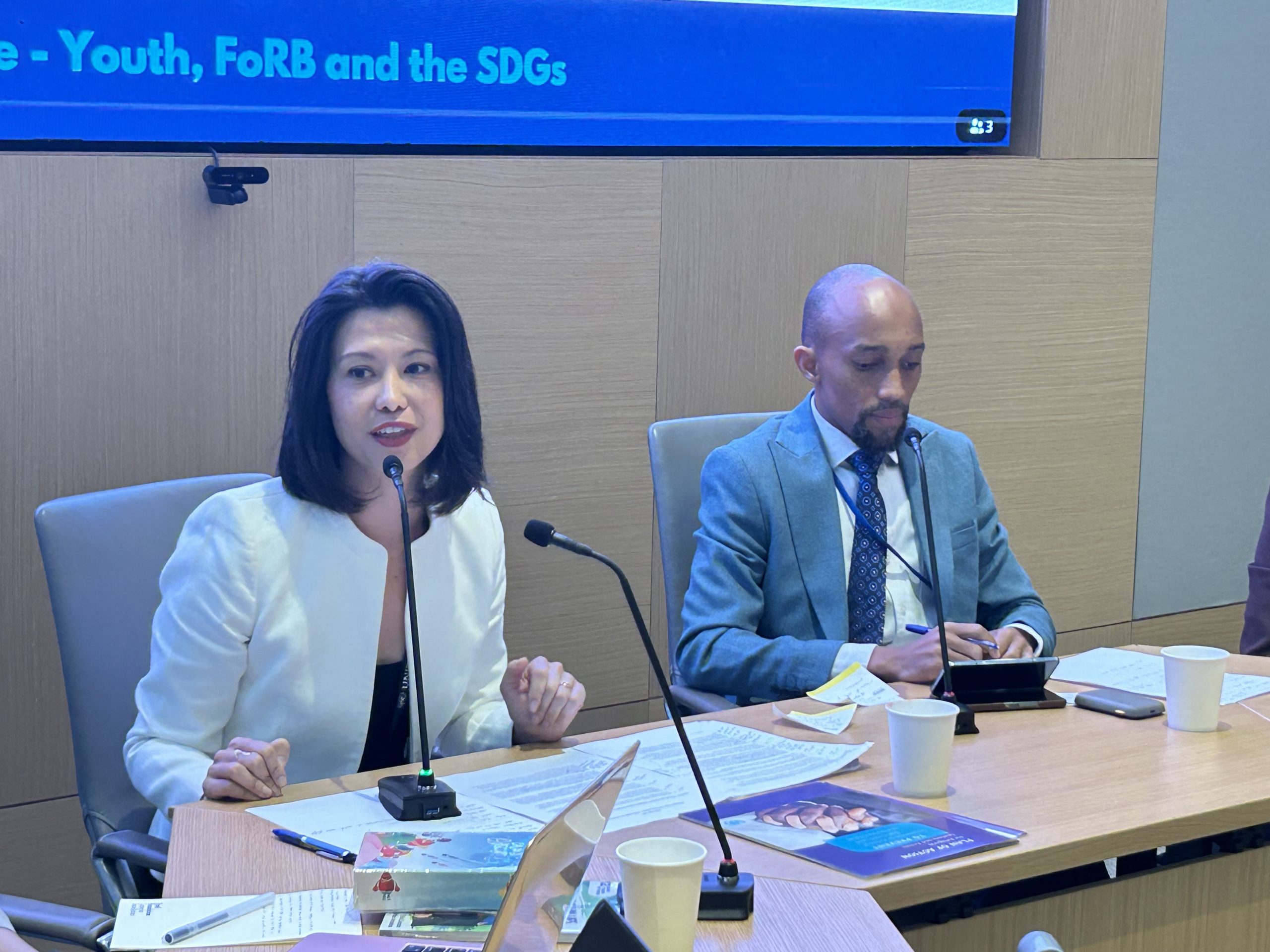Bridging Divides and Building Peace – Youth, FoRB and the SDGs
A side-event to the 2024 High-Level Political Forum
Event | July 2024
The promotion of Freedom of Religion or Belief (FoRB) is not only essential for fostering interfaith peacebuilding but also for advancing progress across the Sustainable Development Goals (SGDs), especially in today’s increasingly interconnected and diverse world. Despite efforts, many communities still face inequalities and violence due to their religion or belief. With 1.8 billion young people worldwide, many of whom live in conflict zones, youth are significantly affected by violence yet often excluded from decision-making efforts.
Mobilizing youth to advance FoRB – and the 17 SDG’s, can help bridge religious divides and promote inclusive peace. On the sidelines of the 2024 High Level Political Forum (HLPF), the Dutch-funded Joint Initiative for Strategic Religious Action (JISRA) project hosted a side event on the theme of, “Bridging Divides and Building Peace – Youth, FoRB and the SDGs.” Providing a platform for youth dialogue on FoRB and SDG 16 on ‘Promote Peaceful and Inclusive Societies’, this side event showcased experiences, challenges and opportunities of young people from diverse religious, cultural and geographic backgrounds.
Ambassador Rashad Hussain, US Ambassador at Large for Religious Freedom offered opening remarks, highlighting the connection between religious freedom and prosperity in countries, emphasizing the need to support religious freedom globally for sustainable peace. He also stressed the significance of civil society as vital voices on the ground and the importance of government cooperation in engaging all aspects of society, including religious actors who often hold local trust and expertise.
Ambassador Rashad Hussain, US Ambassador at Large for Religious Freedom shares open remarks at the JISRA HLPF side event. July 2024.
Ivy Koek, Representative to the UN for Soka Gakkai International, then discussed the founding of the Faith-Based Solutions ImPACT Coalition and the 2024 United Nations Civil Society Conference in Nairobi, Kenya. As faith actors are already playing critical roles in advancing the SDGs, it is crucial to continue to uplift the meaningful engagement of faith actors amongst government and multilateral institutions within the development of the Pact for the Future. Koek concluded in advocating for the inclusion of religious actors, including women and youth of faith as part of civil society, in preparation for the Summit of the Future. Moderated by Mushin Kaduyu Nuwagaba, Founder and Director of Allied Muslim Youth Uganda, a panel discussion commenced, featuring four youth from JISRA–focused countries and a representative from the United Nations Office on the Prevention of Genocide.
Anissa Fitria, Senior Learning Officer for Peace Generation Indonesia, speaker at the JISRA HLPF side event. July 2024.
Anissa Fitria, Senior Learning Officer for Peace Generation Indonesia, presented success stories of young people in Indonesia who have benefitted from their work conducted under the belief that, “to reach peace, is to teach peace.” Fitria then highlighted their curriculum of the ‘twelve basic values of peace,’ which are taught to support people in becoming agents of peace and subsequently disseminating those values amongst their communities. Furthermore, Fitria presented lessons learned and best practices, including using concepts and mechanisms that resonate with youth. This includes utilizing “gamification” tools in the curriculum, such as board games and podcasts, which meets youth where they are and can increase accessibility. Fitria concluded by emphasizing the importance of collaboration and localization, highlighting the need to advocate to the government for providing educational opportunities at the grassroots level.
Haleemah Ahmad, Executive Director and Founder of Acres of Peace discussed the challenges and strengths of intersectional work, focusing on youth advocacy concerning peace and security, particularly in relation to FoRB and climate action. Ahmad emphasized that working directly with communities can reveal unique barriers to engagement and intersectionality, such as FoRB tensions exacerbated by the effects of climate change on pastoral and farming communities across Nigeria. Ahmad also highlighted the successes of JISRA-trained youth in supporting collaborative initiatives and working with the “religious gatekeepers” of communities to create a paradigm shift and change biases, subsequently spreading these messages of unity among their fellowships. Ahmad concluded by emphasizing the importance of meaningful inclusion when implementing the Women, Peace, and Security (WPS) and Youth, Peace, and Security (YPS) Agendas. She stressed the need to ensure that collaboration is key. Women and youth should not only be present in these spaces but also given the opportunity to meaningfully contribute to the conversation. This requires a commitment to continuous capacity building, accountability, and the minimization of corruption to support stronger and more inclusive institutions.
Seybou Sultan, Consortium Coordinator for JISRA in Mali, speaker at the JISRA HLPF side event. July 2024.
Seybou Sultan, Consortium Coordinator for JISRA in Mali, then discussed JISRA’s work as an interreligious forum and the value of dialogue and mutual understanding in bringing communities together and supporting individual FoRB. Sultan utilized Mali as an example of how this approach strengthens local peace and justice. Amid a deeply polarized debate on the place of secularism (‘laïcité’) in the country’s constitution, young religious actors were able to create a space for religious communities to come together and discuss their concerns openly. The forum made national headlines for its awareness raising of secularism’s role in ensuring diverse religious denominations and beliefs are able to practice freely, and anchoring the principle in Mali’s own history and traditions. Through it, Mali’s various religious communities were able to find common ground and reduce some of the tensions that threatened to spill over into violence ahead of and after the constitutional referendum, where the population voted to maintain a contextualized commitment to secularism. This emphasis on interfaith collaboration and institutional development embodies the core goals of JISRA.
Ana Carolina De Almeida Kobe, Human Rights Officer for the UN Office on the Prevention of Genocide, emphasized that neglecting issues related to religion and belief can lead to genocide, directly impacting human rights and the achievement of the SDGs. Kobe stressed the importance of youth participation, noting the unanimous adoption of UN Resolution 2250, which codified the YPS Agenda into international law. She called for a two-fold approach with adults and institutions to support meaningful youth participation and support in advocacy efforts for the implementation of the YPS Agenda.
About the JISRA Project
The Joint Initiative for Strategic Religious Action (JISRA) is a partnership of 50 civil society organizations based in Ethiopia, Indonesia, Iraq, Kenya, Mali, Nigeria, and Uganda (with supporting lobby and advocacy in Europe and the USA). This international, inter religious partnership is implementing a five-year program (2021-2025) in partnership with the Dutch Ministry of Foreign Affairs, to further peaceful and just societies where all enjoy Freedom of Religion and Belief (FoRB).
The basis of the program is JISRA’s conviction that Freedom of Religion and Belief and interfaith dialogue are essential and integral to the realization of peaceful and just societies. In addition, diverse religious actors, including women and youth, can and need to play an important role in this process as change makers. JISRA believes their voices must be heard.
The program is coordinated by four international consortium partners: Mensen met een Missie (lead organization), Tearfund UK and Tearfund the Netherlands, Faith to Action Network, and Search for Common Ground. At the international level, the programme partners with the Dutch Ministry of Foreign Affairs and is supported by technical partner, the Peacemakers Network. At the country level, 46 organizations with very diverse backgrounds implement the program in the seven focus countries.
Follow the Peacemakers Network on social

